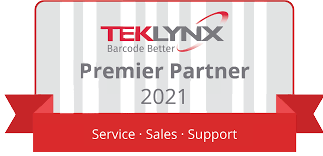
Managing a complex supply chain can be a daunting task for businesses of all sizes. From procurement to distribution, supply chain management involves numerous interconnected processes that require careful coordination and oversight. However, with the right strategies in place, businesses can simplify their supply chain management and improve efficiency, visibility, and profitability. In this article, we’ll explore some of the best strategies for simplifying supply chain management and achieving operational excellence.
1. Embrace Technology Solutions
Investing in technology solutions is key to streamlining supply chain management processes. Utilize supply chain management software and automation tools to digitize manual tasks, streamline workflows, and improve data accuracy. Advanced technologies such as artificial intelligence (AI), machine learning (ML), and blockchain can provide real-time insights, predictive analytics, and enhanced visibility across the supply chain, enabling proactive decision-making and reducing operational complexities. AI-powered demand forecasting tools can analyze historical sales data, market trends, and external factors to predict future demand accurately, allowing businesses to optimize inventory levels and reduce stockouts.
2. Optimize Inventory Management
Effective inventory management is essential for simplifying supply chain operations and minimizing costs. Implement inventory optimization techniques such as demand forecasting, safety stock planning, and just-in-time (JIT) inventory management to ensure optimal inventory levels while reducing excess stock and carrying costs. Utilize inventory management software to track inventory movement, monitor stock levels, and automate replenishment processes, allowing for better inventory control and improved cash flow management. RFID technology can be used to track inventory in real-time, enabling businesses to identify and address inventory discrepancies quickly and accurately.
3. Streamline Supplier Relationships
Building strong supplier relationships is crucial for a smooth-running supply chain. Establish clear communication channels, negotiate favorable terms, and collaborate closely with key suppliers to ensure timely deliveries, quality assurance, and cost-effective sourcing. Implement supplier performance monitoring systems to track supplier performance metrics, identify areas for improvement, and foster continuous collaboration and improvement. Vendor-managed inventory (VMI) programs can allow suppliers to monitor inventory levels at customer locations and replenish stock automatically, reducing lead times and improving inventory visibility.
4. Implement Lean Principles
Adopting lean principles can help eliminate waste, improve efficiency, and streamline supply chain processes. Identify and eliminate non-value-added activities, optimize production flows, and standardize processes to minimize variability and enhance productivity. Utilize lean tools such as value stream mapping, kaizen events, and 5S methodology to identify opportunities for improvement, streamline workflows, and optimize resource utilization throughout the supply chain. Implementing kanban systems can help businesses visualize workflow, control inventory levels, and improve production efficiency by signaling when to replenish materials or move products to the next stage of production.
5. Enhance Visibility and Transparency
Visibility and transparency are essential for effective supply chain management. Implement supply chain visibility solutions that provide real-time insights into inventory levels, order status, and shipment tracking across the entire supply chain. Utilize data analytics and business intelligence tools to analyze supply chain performance, identify bottlenecks, and proactively address issues before they escalate. By enhancing visibility and transparency, businesses can improve decision-making, mitigate risks, and enhance overall supply chain efficiency. Implementing track-and-trace technologies such as GPS tracking, barcode scanning, or RFID can provide real-time visibility into the location and status of goods throughout the supply chain, enabling businesses to optimize logistics operations and meet customer expectations for transparency and accountability.
Ready to Simplify Your Supply Chain Workflows?
Simplifying supply chain management requires a strategic approach that encompasses technology adoption, inventory optimization, supplier relationship management, lean principles, and enhanced visibility. By embracing these best practices, businesses can streamline their supply chain operations, improve efficiency, reduce costs, and gain a competitive edge in today’s dynamic market environment. With the right strategies in place, businesses can achieve operational excellence and drive sustainable growth in their supply chain operations. Take action today and Contact a ValuTrack Technology Specialist to learn more about the ways you can simply the way you manage your business’ supply chain.

Explore ValuTrack’s Supply Chain Management Solutions
Supply Chain Management is a critical discipline that encompasses the planning, coordination, and optimization of processes involved in the production, distribution, and delivery of goods and services. A strong supply chain creates a seamless and efficient flow of materials, information, and finances across the entire supply chain, from the initial stages of procurement to the final delivery to end users.
We’re Here to Help
Contact us to Start the Modernization Process
Looking for more information about a specific technology solution? Feel free to ask us about pricing, data sheets, and demos, or schedule a free in-person/online consultation for strategic guidance from one of our experts.
Fill out the inquiry form or contact us to start the process.









